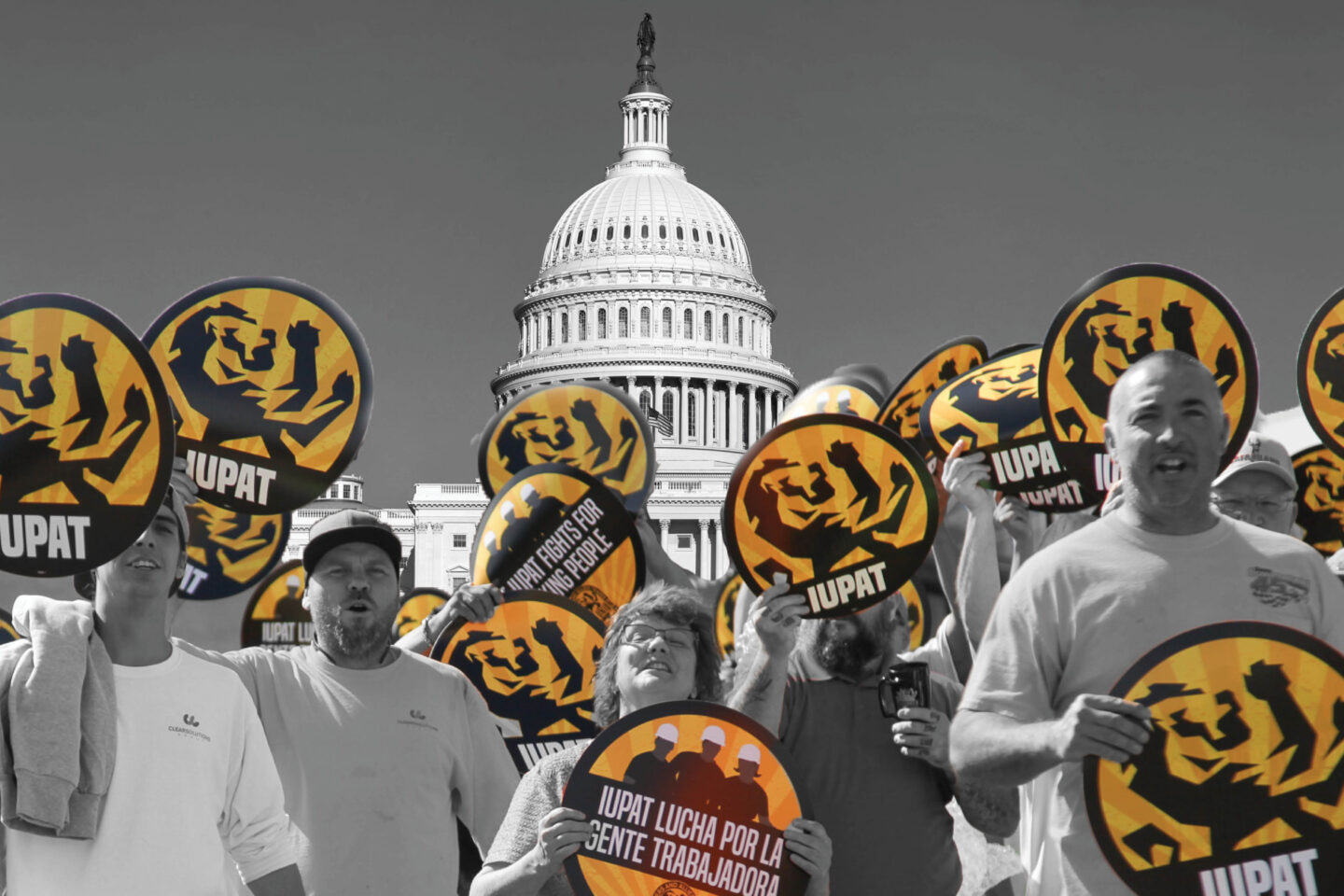
CONSTRUCTION WORKERS SPEAK OUT: FEAR OF BEING LEFT BEHIND BY CONGRESS AS COVID-19 GRINDS INDUSTRY TO A HALT
COVID-19 Relief Bills Leave Behind Nation’s 11 Million Construction Workers and Their Families
Leading Int’l Building Trades Union Demands Relief for Blue Collar Workforce
Impacted construction workers and labor leaders available for interview to raise awareness of the plight faced by workers in overlooked industry
WASHINGTON D.C. – COVID-19 has decimated the U.S. construction industry, and Congress has done little to stop it or to provide relief for workers in this major jobs sector, a leading international building trade union charged Sunday.
Although construction is the 6th largest U.S. employment sector — larger than the transportation, financial, and information sectors — the needs of construction workers have been excluded from COVID-19 relief bills currently being considered by Congress.
Construction labor officials say the industry is being overlooked, despite being the 6th largest employment sector in the nation, larger than the transportation, financial, information sectors.
“Millions of construction workers and their families are getting totally wiped out, and Congress is doing very little about it,” fumed Ken Rigmaiden, General President of the International Union of Painters and Allied Trades (IUPAT), which represents more than a hundred thousand building trade workers. “If construction workers don’t work, they don’t get paid. They can’t work remotely. They don’t receive furloughs, or paid leave. But not one Congressional COVID-19 bill grants real relief to this vulnerable workforce.”
As a result, the nation’s 11 million, construction workers and their families are getting left behind.
Jerry Olivas, a construction worker specializing in glass work and installation known as a glazier, is terrified about what will happen to his cancer-stricken wife when he loses his health insurance due to Congressional inaction.
Olivas worked at MGM in Las Vegas for more than five years, before being laid off last week. He doesn’t know how he’ll support his wife, or their four children and two grandchildren, now that he’s suddenly unemployed.
“My wife is sick,” said an emotional Olivas. “She’s counting on me. What will she do when we lose our health insurance?” he continued. “Why is Congress turning its back on us?”
Olivas is one of millions of construction workers losing their jobs as cities and states have been forced to close down construction sites and bring U.S. construction to a grinding halt.
The IUPAT estimates that at least 50% of construction sites across the country have already been shut down, and fears that number could get as high as 90%. The union believes that shutdowns are necessary in many places to protect the health of workers, but feels Congress has a responsibility to act so that workers, especially in the unregulated south, are not forced to choose between their safety and making ends meet on basic items like food and prescriptions.
The union is urging Congress to take these 4 bold action steps to stand up for vulnerable construction workers:
- Provide immediate unemployment to laid off construction workers at 100% lost wages
- Provide continued health coverage so no one goes uninsured in the crisis
- Secure retirement plans affected by the crisis
- Invest in American infrastructure to quickly put construction workers back to work
The bills Congress is considering include provisions like student loan suspension, and airline industry bailouts – but nothing to specifically address key need of the millions of working families in construction who are finding themselves out of work and with uncertain futures.
“Not a single Congressional COVID-19 bill gives construction workers relief for the specific needs they have in the wake of this pandemic,” said IUPAT General President Ken Rigmaiden. “That’s why the IUPAT has proposed a Bold Action Platform for Working Families to demand Congress act now for these workers.”
# # #
THE INTERNATIONAL UNION OF PAINTERS AND ALLIED TRADES (IUPAT)
Represents a growing community of over 110,000 active and retired craftspeople in the United States and Canada. The IUPAT membership extends far beyond the workplace.
Recognized as one of the most active unions in the labor movement, IUPAT members help shape their communities in many ways: through an abiding commitment to service, by fighting passionately for workers’ rights that benefit all working families, and through effective worker education and mobilization.
Visit www.IUPAT.org to learn more